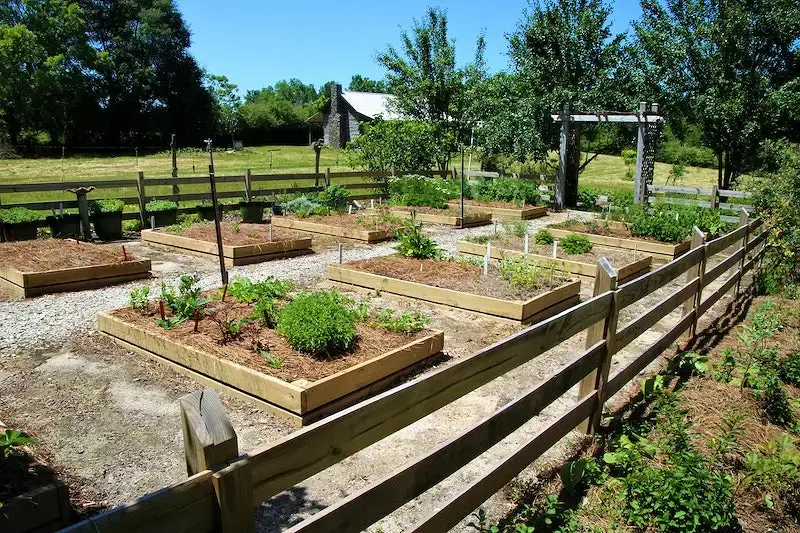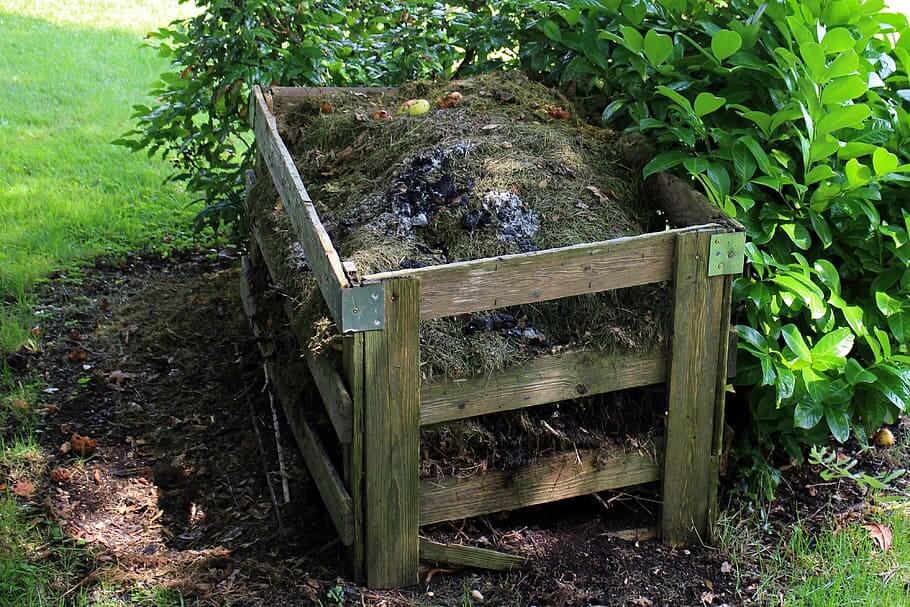
Crafting Your Own DIY Gardening Supplies: A Green Thumb’s Guide
By Steven Green | September 19, 2023
Are you ready to take your gardening skills to the next level?
In ‘Crafting Your Own DIY Gardening Supplies: A Green Thumb’s Guide,’ you’ll discover how to create essential tools and products for your garden.
From building a compost bin to crafting homemade plant markers, this guide will help you become a master of self-sufficiency.
Get ready to unleash your creativity and nurture your plants with your very own homemade solutions.
Let’s dive in and get our hands dirty!

Building a Compost Bin From Scratch
If you want to start composting, you can easily build a compost bin from scratch using wooden pallets and chicken wire.
First, find four wooden pallets that are in good condition. Stand them up vertically to form the walls of the bin. Secure the corners with screws or nails to ensure stability.
Next, measure the dimensions of the pallets to determine the size of chicken wire needed. Cut the chicken wire and attach it to the inside of the bin using staples or zip ties. This will prevent compost from falling out while allowing air circulation.
Lastly, place the bin in a convenient location in your yard and start adding organic waste. With this DIY compost bin, you’ll be on your way to producing nutrient-rich compost for your garden in no time!

Crafting Homemade Plant Markers
You can personalize your garden by crafting homemade plant markers using materials like popsicle sticks or wine corks, and by painting them with bright colors or fun designs.
Homemade plant markers not only add a touch of creativity to your garden, but they also serve a practical purpose by helping you identify and keep track of your plants.
To make your own plant markers, start by collecting popsicle sticks or wine corks. You can then paint them with acrylic paint in any color you desire, or even use permanent markers to draw fun designs.
Once the paint is dry, simply write the names of the plants on the markers using a waterproof pen.
These personalized plant markers will add a unique and charming touch to your garden while keeping everything organized.
DIY Seed Starting Containers
You can easily create your own DIY seed starting containers using recycled materials like egg cartons or toilet paper rolls, and by following simple steps to make your seeds sprout and grow into healthy plants.
Start by collecting empty egg cartons or toilet paper rolls. Cut the egg cartons into individual sections or flatten the toilet paper rolls. Fill them with a high-quality potting mix and moisten the soil.
Next, plant your seeds according to the instructions on the seed packet. Place the containers in a warm and well-lit area, ensuring they receive enough sunlight. Water them regularly, keeping the soil moist but not soggy.
As the seeds germinate and the sprouts grow, you can transplant them into larger pots or directly into your garden. With a little patience and care, you’ll have a beautiful and bountiful garden in no time!
Creating Your Own Organic Fertilizers
Have you considered using compost or animal manure as organic fertilizers, or would you prefer to explore other options like making your own plant-based fertilizers using kitchen scraps and natural ingredients?
When it comes to nourishing your garden, there are various methods you can choose from. Using compost or animal manure is a popular choice among gardeners. These organic fertilizers provide essential nutrients to your plants, improving their growth and overall health.
On the other hand, if you’re looking for alternative options, making your own plant-based fertilizers can be a great way to utilize kitchen scraps and natural ingredients. This DIY approach not only helps reduce waste but also allows you to customize the nutrient content based on your plants’ specific needs.
Whichever option you choose, remember that organic fertilizers are beneficial for both your plants and the environment.
Homemade Pest Control Solutions
If you’re dealing with pesky garden pests, consider using homemade pest control solutions such as vinegar and water sprays or diatomaceous earth to naturally repel insects and protect your plants.
These DIY remedies aren’t only cost-effective but also environmentally friendly. Vinegar and water sprays, made by mixing equal parts vinegar and water, are effective against aphids, ants, and other small insects. Simply spray the solution directly onto the affected plants, focusing on the leaves and stems.
Diatomaceous earth, on the other hand, is a natural powder made from fossilized algae. It works by dehydrating and killing insects upon contact. Sprinkle a thin layer of diatomaceous earth around your plants to create a barrier that repels pests. Remember to reapply after rain or watering.
With these homemade pest control solutions, you can keep your garden thriving without relying on harmful chemicals.
Frequently Asked Questions
What Are Some Alternative Methods for Building a Compost Bin if I Don’t Have the Tools or Materials Mentioned in the Article?
If you don’t have the tools or materials mentioned in the article, you can still build a compost bin using alternative methods.
Look for items like wooden pallets, wire mesh, or even repurposed containers to create a DIY composting solution.
Are There Any Creative Ideas for Homemade Plant Markers That Can Add a Decorative Touch to My Garden?
You can make homemade plant markers that add a decorative touch to your garden.
Get creative with materials like painted stones, popsicle sticks, or even repurposed vintage spoons.
Can I Reuse Household Items, Such as Yogurt Containers or Egg Cartons, as Seed Starting Containers?
Yes, you can definitely reuse household items like yogurt containers or egg cartons as seed starting containers.
It’s a great way to repurpose them and save money on buying new ones.
How Can I Make Organic Fertilizers Using Ingredients That Are Easily Accessible?
You can easily make organic fertilizers using ingredients that are easily accessible.
Start by researching natural ingredients like compost, coffee grounds, and banana peels.
Mix them together and apply them to your plants for a nutrient boost.
Are There Any Natural Pest Control Solutions That Specifically Target Common Garden Pests Like Aphids or Slugs?
Yes, there are natural pest control solutions that specifically target common garden pests like aphids or slugs.
You can make your own DIY solutions using easily accessible ingredients for an effective and eco-friendly approach.
Conclusion
In conclusion, crafting your own DIY gardening supplies can’t only save you money but also allow you to have complete control over the materials you use in your garden.
From building a compost bin to creating homemade organic fertilizers and pest control solutions, there are plenty of opportunities to personalize and enhance your gardening experience.
So put your green thumb to work and enjoy the satisfaction of creating your own sustainable garden supplies.
